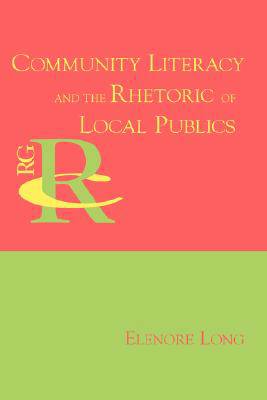
- Retrait gratuit dans votre magasin Club
- 7.000.000 titres dans notre catalogue
- Payer en toute sécurité
- Toujours un magasin près de chez vous
- Retrait gratuit dans votre magasin Club
- 7.000.000 titres dans notre catalogue
- Payer en toute sécurité
- Toujours un magasin près de chez vous
Description
Offering a comparative analysis of "community-literacy studies," COMMUNITY LITERACY AND THE RHETORIC OF LOCAL PUBLICS traces common values in diverse accounts of "ordinary people going public." Elenore Long offers a five-point theoretical framework. Used to review major community-literacy projects that have emerged in recent years, this local public framework uncovers profound differences, with significant consequence, within five formative perspectives: 1) the guiding metaphor behind such projects; 2) the context that defines a "local" public, shaping what is an effective, even possible performance, 3) the tenor and affective register of the discourse; 4) the literate practices that shape the discourse; and, most signficantly, 5) the nature of rhetorical invention or the generative process by which people in these accounts respond to exigencies, such as getting around gatekeepers, affirming identities, and speaking out with others across difference. COMMUNITY LITERACY AND THE RHETORIC OF LOCAL PUBLICS also examines pedagogies that educators can use to help students to go public in the course of their rhetorical education at college. the concluding chapter adapts local-public literacies to college curricula and examines how these literate moves elicit different kinds of engagement from students and require different kinds of scaffolding from teachers and community educators. A glossary and annotated bibliography provide the basis for further inquiry and research. ABOUT THE AUTHOR After completing a postdoctoral fellowship through Pittsburgh's Community Literacy Center and Carnegie Mellon University, Elenore Long continued to direct community-literacy initiatives with Wayne Peck and Joyce Baskins. With Linda Flower and Lorraine Higgins, she published LEARNING TO RIVAL: A LITERATE PRACTICE FOR INTERCULTURAL INQUIRy. They recently published a fifteen-year retrospective for the COMMUNITY LITERACY JOURNAL. She currently directs the composition program and Writers' Center at Eastern Washington University. ADVANCE PRAISE . . . "COMMUNITY LITERACY AND THE RHETORIC OF LOCAL PUBLICS is the perfect entry to the exuberant practice of literacy in community. It brings contemporary research to life-in people, stories, and purposes. And it documents the amazingly diverse ways ordinary people go public. Moreover, Elenore Long's imaginative theoretical framework lets us understand and critically compare alternative images of local public life-from the literate worlds of church women, writing groups, and street gangs to the performances of community organizing, street theater, and local think tanks. Long's analytical and profoundly rhetorical insight is to compare community literacies in terms of their framing metaphors, privileged practices, and processes of rhetorical invention. And that is perhaps what makes the final chapter such a pedagogical powerhouse-a brilliantly critical and concrete guide to supporting our students and ourselves in local literate action." -Linda Flower, Carnegie Mellon "Elenore Long's COMMUNITY LITERACY AND THE RHETORIC OF LOCAL PUBLICS begins to articulate a history for community literacy studies, and such a history is essential for helping us figure out where we are going with this area of inquiry. Long provides a new set of tools as well, and her local publics framework, in particular, will prove valuable to researchers and teachers alike." -Jeff Grabill
Spécifications
Parties prenantes
- Auteur(s) :
- Editeur:
Contenu
- Nombre de pages :
- 316
- Langue:
- Anglais
- Collection :
Caractéristiques
- EAN:
- 9781602350564
- Date de parution :
- 18-03-08
- Format:
- Livre broché
- Format numérique:
- Trade paperback (VS)
- Dimensions :
- 152 mm x 229 mm
- Poids :
- 462 g







